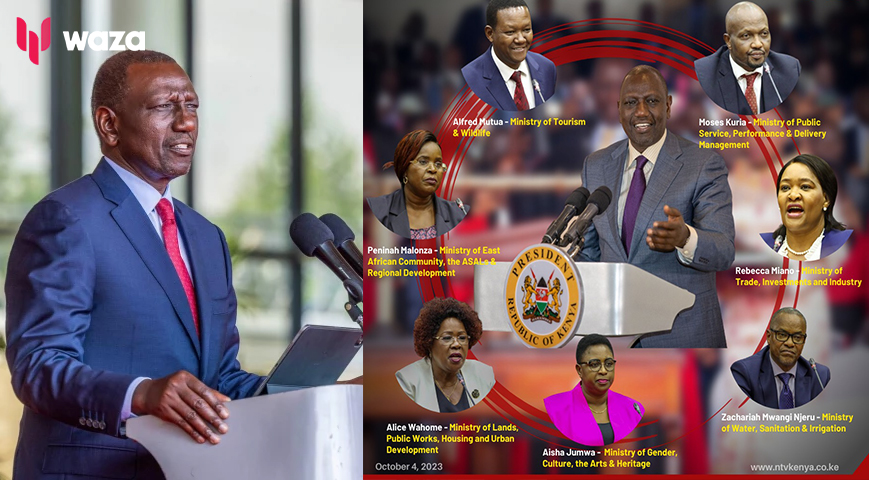President William Ruto's Cabinet has responded to harsh criticism over the government's handling of key issues affecting Kenyans, particularly from the Kenya Conference of Catholic Bishops. The bishops accused the administration of fostering a culture of dishonesty, including failing to settle debts owed to faith-based hospitals.
In a swift defense, the government announced it had disbursed Ksh.5 billion to hospitals in the past month. The Cabinet also pointed to progress in addressing unemployment, highlighting that 100,000 Kenyans had secured jobs abroad amid concerns over widespread layoffs attributed to the high cost of doing business locally.

During a Cabinet briefing on Thursday, officials sought to present a narrative of economic recovery under the Kenya Kwanza administration. Treasury Cabinet Secretary John Mbadi cited Kenya's economic growth rates, noting a 5.6% growth last year, with projections of 5% this year and 5.4% in 2024.
Among the economic successes highlighted were the country’s lowest inflation rate since 2007, standing at 2.7% last month, and a drop in food prices, including maize, beans, and peas. A 2kg packet of maize flour, which retailed at Ksh.176 a year ago, is now selling for Ksh.124.
Did you read this?
The government also celebrated the success of its subsidized fertilizer program, claiming it would eliminate the need to import sugar this year. Kenya’s forex reserves hit a historic high of $9.5 billion, and the exchange rate averaged 129 shillings to the dollar.
Despite these optimistic indicators, contrasting views emerged from within Ruto’s circle. Economic advisor David Ndii, addressing mass layoffs, stated on social media: “Companies serving a small elite market will face tougher times. If your customer base depends on suburban lifestyles, expect things to worsen before improving.”
The Cabinet acknowledged challenges, including high interest rates and the need to settle pending bills to improve liquidity in the economy. “We must ensure Kenyans have money in their pockets. Interest rates are decreasing, which will unlock funds for the private sector,” Mbadi said.
Tax reform also remained a focal point, with Mbadi echoing calls from the Catholic bishops for reduced direct taxation to spur economic growth. “We must reduce taxes to grow the economy,” he concluded.









